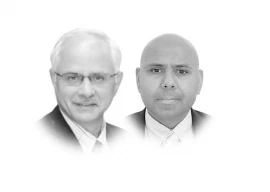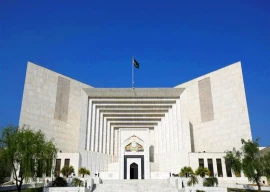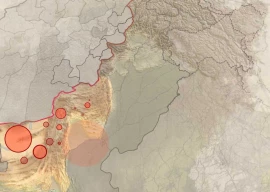
In Pakistan and elsewhere, there are at least three obstacles in improving the transparency of budget processes: weak citizens’ involvement, limited parliamentary debates and unavailable or opaque information on budgets.
The concept of participatory budgeting for increased citizens’ involvement is nonexistent in Pakistan. Brazil has positive experiences with participatory budgeting initiated in the 1990s in the city of Porto Alegre, where around 40,000 citizens participate every year in the preparation of its municipal budget. Why is citizen participation so critical? It is needed partly because it addresses inequalities and enhances the performance of policies and allocations. In Porto Alegre, citizen participation empowered low-income segments of the population to raise their voices and prioritise their needs. The sewer and water connections in Porto Alegre increased from 75 per cent of the total households in 1988 to 98 per cent in 1997. The number of schools quadrupled, and health and education budgets increased from 13 per cent to 40 per cent in 10 years. The participatory budgeting concept works well at the municipal level and in the presence of a well-functioning local government system, a platform tragically absent in Pakistan.
Like participation of citizens, parliamentarian engagement in the budget-making process is also limited in Pakistan where 15 to 20 calendar days are allocated on average for parliamentary debate. Budget sessions are extremely short, leaving insufficient time for substantive discussions. For example, in the 2003-04 fiscal year, the federal budget was passed in just nine hours. The longest duration period was 56 hours in 2006. India assigns 75 days for parliamentary discussions; Pakistan should also increase the days allocated for parliamentary debate. Furthermore, the Statutory Regulatory Orders (SRO) regime further curtails the oversight of parliamentarians in budgetary affairs and inflicts losses to the exchequer: the cost of exemption and concessions through SROs has been around Rs470 billion in 2014 alone. Finally, ‘block allocation’ of funds for unapproved projects defeats the principles of transparency and generally represents 20 per cent of the total estimated development expenditures. The government’s decision to do away with the SRO regime is a welcome step to minimise discretionary powers of the executive and should, therefore, be implemented in letter and spirit.
The third aspect, which will help improve transparency in budget-making, is access to non-technical and easily understandable information about budgets. In addition to the numerous bulky, technical documents, which parliamentarians have to read in a very limited time, the federal government and the four provinces use different formats for the budget documents. For example, Punjab reports the bulk of its education and health budgets under transfers to local government, while other provinces report them under different heads. Some provinces issue white papers on budgets, others do not. It is, however, encouraging to note that some efforts are being made in this regard. Punjab and Khyber-Pakhtunkhwa (K-P) have introduced the Right to Information Acts, which have the potential to improve access to services. K-P and Punjab have published a citizens’ budget for this fiscal year with the support of DFID. In addition to the Right to Information Act, supported by the UNDP, K-P has also introduced the Right to Service and Conflict of Interest Acts, which would help in creating an environment conducive for transparency and accountability.
The accountability for results is another crucial area where the federal and provincial governments should invest. The current budgetary processes, through which funds are allocated, disbursed and accounted for, need a thorough review and alignment.
The disbursement of funds from the federal Public Sector Development Programme (PSDP) or the provincial Annual Development Plans are made through a highly bureaucratic, time-consuming and antiquated process, resulting in delays and lapses of funds. Coupled with too many new projects, at times driven by political exigencies, the process transforms the whole development programme into a wish list. The federal PSDP 2014-15 contains 181 unapproved projects with an estimated cost of Rs3 trillion. Due to delays in releases, the whole accountability framework is diluted between disbursing and recipient agencies: the former blaming the latter for underutilisation due to capacity issues and the latter criticising the former for highly cumbersome processes. For instance, in the last fiscal year, Sindh was critical of the federal government for the shortfalls in transfer of funds of Rs81 billion and cited it as the main reason for reduction in the education budget by 20 per cent and health by 23 per cent.
Pakistan follows what is called incremental budgeting, where the budget for a particular ministry or department is enhanced by a given percentage over the last year’s budget without any evidence-based criteria to take into account past performance and actual needs. The good news is that Pakistan has been using the Medium Term Budgetary Framework (MTBF) and output-based budgeting tools since 2005. However, greater political will and institutional capacities are needed to implement the MTBF in its true spirit. The MTBF mechanism could help set clear targets against which accountability systems could be put in place. A good example for Pakistan is Colombia, where the MTBF was enhanced with an up-to-date results tracking system with a web interface that was accessible to decision-makers and the general public.
Pakistan urgently needs to review its budget-making process to make it participatory, transparent, accountable and impact-oriented. Pakistan must test the concept of participatory budget at the district or municipal level to give voice to the poor segments in budgetary processes and to enhance the effectiveness and impact of budgets. Achieving the MDGs and the government’s goals is not only about raising revenues, but also and more immediately about how they are allocated, spent and tracked.
Published in The Express Tribune, October 23rd, 2014.
Like Opinion & Editorial on Facebook, follow @ETOpEd on Twitter to receive all updates on all our daily pieces.













COMMENTS
Comments are moderated and generally will be posted if they are on-topic and not abusive.
For more information, please see our Comments FAQ